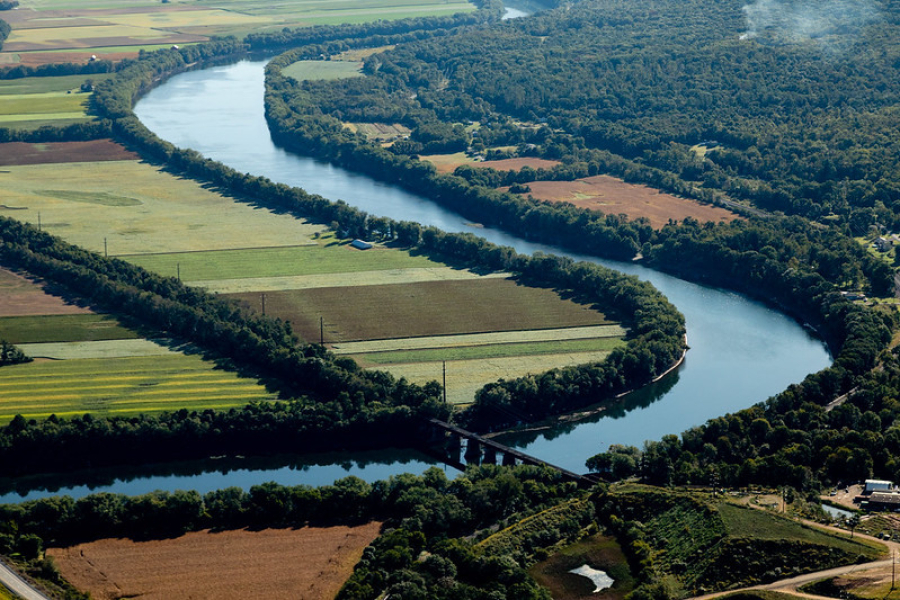Help the Chesapeake Bay Program chart the next phase of Bay restoration
Draft recommendations on the future of the Watershed Agreement now available for feedback

At their October 2022 meeting, the Chesapeake Executive Council, the body responsible for setting the policy direction for the Chesapeake Bay Program, issued a charge to the partnership. As many of the outcomes in the Chesapeake Bay Watershed Agreement have targets to meet by 2025, the time was nearing to begin thinking about the next phase of Bay restoration.
The charge directed the Principals’ Staff Committee, the group responsible for implementing the policy actions set by the Executive Council, to prepare recommendations that prioritize and outline the next steps for meeting the goals and outcomes of the Watershed Agreement beyond 2025, as well as focus on the future of the partnership.
Over the last year-and-a-half, a steering committee consisting of representatives from each of the six watershed states (Delaware, Maryland, New York, Pennsylvania, Virginia and West Virginia), District of Columbia, federal agencies participating in the Chesapeake Bay Program, Goal Implementation Teams, advisory committees and non-profit organizations worked along with subject matter experts in a variety of disciplines to chart a course forward for the partnership and Bay restoration.
These recommendations, along with supporting documentation, are now available. From July 1–August 30, 2024, we invite you to send us your feedback on the draft. A subset of the steering committee will review the feedback received and revise the recommendations as appropriate. The revised draft will then be presented to the Management Board and Principals’ Staff Committee to inform their own recommendations to the Executive Council at their meeting in December 2024.
What do the recommendations say?
The steering committee recommends the following:
- The Chesapeake Executive Council should affirm its continued commitment to meeting the goals of the Chesapeake Bay Watershed Agreement and direct the Principals’ Staff Committee to propose the necessary amendments to effectively implement the Watershed Agreement.
- The Chesapeake Bay Program should be strengthened by identifying ways to simplify and streamline the partnership’s structure and processes, including potential changes to the partnership’s Governance and Management Framework to ensure that commitments can be met.
These recommendations were informed by an independent evaluation of the partnership conducted by an outside contractor and one-page proposals developed by five small groups reflecting critical topic areas: Clean Water, Climate Change, Healthy Watersheds, People and Shallow Water Habitats.
How can feedback be provided?
Feedback will be accepted via email to comments@chesapeakebay.net through 11:59 p.m. ET on Friday, August 30, 2024, but you are highly encouraged to submit your comments prior to that date. A list of frequently asked questions is available for your reference.
To help ensure your feedback is reviewed in the most efficient and effective way possible, we ask that you group your comments in the following five categories:
- Science.
- Restoration and Conservation.
- Partnership.
- Chesapeake Bay Watershed Agreement.
- Miscellaneous.
A revised document will be presented to the Principals’ Staff Committee in October 2024.

Comments
I do not want a Silent Spring. Get rid of the toxins.
Let the kids swim and fish off the piers. Please keep the water clean so they can enjoy what we used to enjoy back in the day.
Join with Future Harvest to help educate farmers with using techniques that help protect the bay, the air and the surrounding land.
Hopefully, the efforts to gain consensus on long term strategy will move quickl to piotity and focus. Agricultural mitigation is missing the mark to date. A change in how this is addressed should be strategy one. Climate change impact on the Bay is the most ignored Chesapeake risk in the next decades. Incorporating carbon and methane projections into watershed improvement projects, and inversely incorporating watershed mitigation into projects that address rising bay waters should be strategy priority two
Time to stop the fertilizers on our private yards. Let the farmers do what they have to do. Our desires for plush green yards is the top contributor but does the DEQ and CBPA have the backbone to start what we all know needs addressing?
YES, stop and make it illegal for all of these lawn and garden shops, home depot lowes walmart etc.. to just sell OTC pesticide, insecticides, herbicides, fungicides etc etc and all those nasty chemicals and poisons, where anyone clown can buy and misuse it. As a professional we have to go through certifications and licensing just to even enter the room the stuff gets stored in, LET ALONE actually to use or apply it, but yet any SMOE on the block can go buy this stuff and spray it all over the country killing everything in sight!!! That' be a GREAT HELP! MAKE IT ILLEGAL to sell n purchase w/o credentials that prove they know how to use it!
I'm the founder of Magnet Fishers of Virginia, if there is anyway we can help further the goals of this program please let me know! In the past year alone we've removed hundreds of tons of metal from Virginia's waterways and will continue to do so.
When after all these years are we going to get dumped in the upper bay by opening the flood gates at coloring. Time to clean up the catch basin by the company operators or remove the dam. Oh also stop the importation into delmarva of put of state agricultural waste.
Thank you!
Your comment has been received. Before it can be published, the comment will be reviewed by our team to ensure it adheres with our rules of engagement.
Back to recent stories